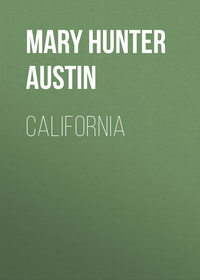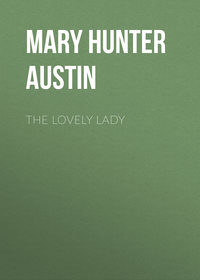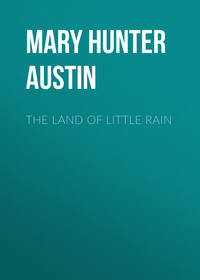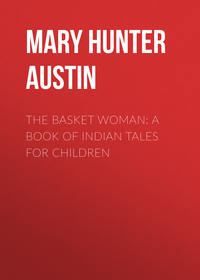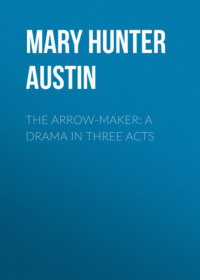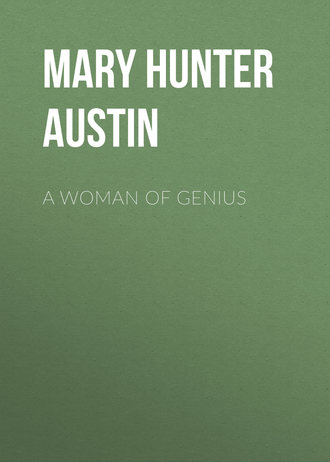 полная версия
полная версияA Woman of Genius
Flora Haines and I looked at one another silently; we might have known Pauline's mother wouldn't let her do anything so common as get converted.
CHAPTER VI
I was duly taken into the church on the following Sabbath, to the great relief of my family, having for once exhibited the normal reaction of a young person in my circumstances, and though I have laid much to the door of that institution of the retarding of my development and the dimming of the delicate surface of happiness, I think now it was not wholly bad for me. If I hadn't up to this time found any way of being good by myself, I was now provided with a criterion of conduct toward which even those who hadn't been able to manage it for themselves, moved a public approbation. I have heard my mother say that even Mr. Farley, the banker, who read books on evolution and was a Freethinker (opprobrious term), had been known to pronounce the church an excellent thing for women.
The church left you in no doubt about things. You attended morning and evening service; as soon as you were old enough for it, which was before you were fit, you taught in Sunday school; you waited on table at oyster suppers designed for the raising of the minister's salary, and if you had any talent for it you sang in the choir or recited things at the church sociables. And when you were married and consequently middle-aged, you joined the W. F. M. S. and the Sewing Society.
It was after the incident of the coal-hole that I began to experience this easy irreproachability, and to build out of its ready-to-hand materials a sort of extra self, from which afterward to burst was the bitter wound of life. For my particular church went farther and provided a chart for all the by-lanes of behaviour. "You were never," said the evangelist, whose relish of the situation on the day that a score or so of us had renounced the devil and all his works, gave me a vague sensation of having made a meal and licked his lips over us, "you should never go anywhere that you could not take your Saviour with you," and when I saw Cousin Judd wag at my mother and she smile and pat her hymn book, I was apprised that we had come to the root of the whole matter.
I have wondered since to how many young converts in Ohianna that phrase has been handed out and with what blighting consequences.
For a Saviour as I knew Him at thirteen and a half, was a solemn presence that ran in your mind with the bleakness of plain, whitewashed walls and hard benches and a general hush, a vague sensation of your chest being too tight for you, and a little of the feeling you had when you had gone to call at the Allinghams and had forgotten to wipe your feet; and it was manifest if you took that incubus everywhere you went you wouldn't have any fun.
It was fortunate at that time that it was not the desire for entertainment that moved me so much as the need of my youth to serve; the unparented hunger for authority. But with the pressure of that environment, if there had been anybody with the wit to see where my Gift lay, what anybody could have done about it it is difficult to say. When all that Taylorville afforded of the proper food of Gift, brightness, music, and the dance, was of so forlorn a quality, it has been a question if I do not owe the church some thanks for cutting out the possible cheapening of taste and the satisfaction of ill-regulated applause – that is, if Gift can be hurt at all by what happens to the possessor. It can be cramped and enfeebled in expression, rendered tormenting in its passage and futile to the recipient, but to whom it comes its supernal quality rises forever beyond all attainder.
What happened to the actress during all the time I was undertaken by the church to be made into the sort of woman serviceable to Taylorville, was inconsiderable; what grew out of it for Olivia was no small matter, and much of it I lay without bitterness to Cousin Judd, who, from having got himself named adviser in my father's will, was in a position to affect my life to the worse.
And yet, in so far as I am not an unprecedented sport on the family tree, I had more in common with this shrewd-dealing, loud-praying, twice-removed soldier cousin than with any of my kin, though I should hardly say as much to him, for he has never been in a theatre, and if he still considers me a hopeful subject for prayer it is because his Christian duty rises superior to his conviction.
He is pricked out in my earlier recollections by the difficulty he seems to have had in effecting a compromise between the traditional distrustfulness of the Ohianna farmer toward the Powers in general, and particularly of the weather, and his obligation of Christian Joy, and for a curious effect of not belonging to his wife, a large, uninteresting woman with a sense of her own merit which she never succeeded in imposing on anybody but Cousin Judd. She had a keen appreciation of worldly values which led her always to select the best material for her clothes, and another feeling of their expensiveness which resulted in her being always a little belated in the styles. She approved of religion, though not active in it, and in twenty years she and Cousin Judd had arrived at a series of compromises and excuses which enabled her to appear at church one Sunday in five and still keep up the interest of the clergyman and congregation as to why she didn't come the other four.
Whenever the days were short or the roads too heavy, Cousin Judd would put up over night at our house, and I remember how my mother would always be able to say, looking about the empty democrat wagon as though she expected her in ambush somewhere:
"And you didn't bring Lydia?" and Cousin Judd being able to reply to it as if it were something he had expected up till the last moment, and been keenly disappointed:
"Well, no, Liddy ain't feeling quite up to it," which my mother received without skepticism. After this they were free to talk of other things.
What there was between Cousin Judd and me, with due allowance for the years, was the spark, the touch-and-go of vitality that rose in me to a hundred beckonings of running flood and waving boughs – music and movement; and only the moral enthusiasms of war and religion raised through his heavy farmer stuff. We should have loved one another had we known how; as it was, all our intercourse was marked on his part by the gracelessness of rusticity, and by the impertinence of adolescence on mine. I used regularly to receive his pious admonitions with what, for a Taylorville child, was flippancy; nevertheless there were occasions when we had set off of summer Sunday mornings together to early class, when the church was cool and dim and the smell of the honey locusts came in through the window, that I caught the thrill that ran from the pounding of his fist where he prayed at the other end of the long bench; and there was a kind of blessedness shed from him as with closed eyes and lifted chin he swung from peak to peak of the splendid measure of "How Firm a Foundation," that I garnered up and hugged to myself in place of Art and the Joy of Living. All of which was very good for me and might have answered if it had not come into Cousin Judd's head that he ought to overlook my reading.
By this time I had worked through all my father's books and was ready to satisfy the itch of imagination even with the vicious inaccuracies of what was called Christian literature. The trouble all came of course of my not understanding the nature of a lie. Not that I couldn't tell a downright fib if I had to, or haven't on occasion, but a lie is to me just as silly a performance when it is about marriage or work as about the law of gravitation, and when it is presented to me in the form of human behaviour it makes me sick, like the smell of tuberoses in a close room; and I failed utterly to realize then that there are a great many people capable of living sincerely and at the same time blandly misrepresenting the facts of life in the interests of what is called morality. I do not think it probable that Cousin Judd accepted for himself the rule of behaviour prescribed by the books he recommended – I shall not tell you what they were, but if there are any Sunday-school libraries in Ohianna you will find them on the shelves – but I know that he and my mother esteemed them excellent for the young.
So far as they thought of it at all, they believed that in surrounding me with intimations of a life in which there was nothing more important than settling with Deity the minor details of living, and especially how much you would pay to His establishment, they had done their utmost to provide me with a life in which nothing more important could happen. If you were careful about reading the Bible and doing good to people – that is, persuading them to go to church and to leave off swearing – all the more serious details such as making a living, marrying and having children would take care of themselves; and the trouble was, as I have said, that I believed it. And that was how I found myself farthest from Art and Life at the time when I found myself a young lady.
I had to make this discovery for myself, for there were no social occasions in Taylorville to give a term to your advent into the grown-up world, though there was a definite privilege which marked your achievement of it. There was a period prior to this in which you bumped against things you were too old for, and carromed to the things for which you were quite too young, and about the end of your high-school term you had done with hair ribbons and begun to have company on your own account, and the sort of things began to happen which marked the point beyond which if you fell upon disaster it was your own fault. They happened to me.
By dint of my doing her compositions and of her doing my arithmetic, Pauline Allingham and I had managed to keep together all through the high school, and it was in our last year, when we used to put in the long end of the afternoons at Pauline's, playing croquet, that I first took notice of Tommy Bettersworth. The Bettersworth yard abutted on the Allingham's for the space of one woodshed and a horse-chestnut tree, and it was along in October that I began to be aware that it was not altogether the view of the garden that kept Tommy on the woodshed or in the chestnut tree the greater part of the afternoon. It may be that the adventure with Charlie Gower had sharpened my perception, at any rate it had aroused my discretion; I was carefully oblivious to the proximity of Tommy Bettersworth. But there came a day when Pauline was not, when she wanted to tell me something about Flora Haines which she was afraid he might overhear.
"Come around to the summer-house," she said, "Tommy's always hanging about; I can't think what makes him."
"Always?" I suggested.
"Why, you know yourself he was there last Saturday, and Thursday when we …"
"Is he there when you and Flora are there, or only …"
"Oh," Pauline gave a gasp, "No – Oh, I never thought … Olive … I do believe … that's it!"
"Well, what?"
"It's you, Olive," solemnly. "It must be that … he really is…" Pauline's reading included more romance than mine.
"Well, he can't say I gave him any encouragement."
"Oh, of course not, darling," Pauline was sympathetic. "You couldn't … it is so interesting. What would the girls say?"
"Pauline, if you ever …"
"Truly, I never will… But just think!"
But we reckoned without Alfred Allingham. Alfred was not a nice boy at that age; he had come the way of curled darlings to be a sly, tale-bearing, offensive little cad, and the next Saturday, when Pauline turned him off the croquet ground for ribaldry, he went as far as the rose border and jeered back at us.
"I know why you don't want me," he mocked; "so's I can't see Olive and Tommy Bettersworth makin' eyes." He executed a jig to the tune of
"Olive's mad and I am glad.
And I know what'll please her – "
At this juncture the wrist and hand of Tommy Bettersworth appeared over the partition fence armed with horse-chestnuts which thudded with precision on the offensive person of Alfred Allingham. Pauline and I escaped to the summer-house. I thought I was going to cry until I found I was giggling, at which I was so mortified that I did cry.
"He'll tell everybody in school," I protested.
"What do you care?" soothed Pauline, "besides, you have to be teased about somebody, you know, and have somebody to choose you when they play clap in and clap out. You just have to. Look at me." Pauline had been carrying on the discreetest of flirtations with Henry Glave for some months. "Tommy Bettersworth is a nice boy, and besides, dear, we'll have so much more in common."
Pauline was right. Unless you had somebody to be teased about you were really not in things. I was furiously embarrassed by it, but I was resigned. Tommy sent me two notes that winter and a silk handkerchief for Christmas which I pretended was from Pauline. I am not going to be blamed for this. It was at least a month earlier that I had observed Tommy Bettersworth's inability to get away from Nile's corner on his way home from school until I had passed there on mine. It struck me as a very interesting trait of masculine character; I would have liked to talk it over with my mother on the plane of human interest; it seemed possible she might have noted similar eccentricities. I remember I worked around to it Saturday morning when I was helping her to darn the tablecloths. My mother was not unprepared; she did her duty by me as it was conceived in Taylorville, and did it promptly.
"You are too young to be thinking about the boys," she said. "I don't want to hear you talking about such things until the time comes."
This was so much in line with what was expected of parents, that I blinked the obvious retort that the time for talking about such things was when they began to happen, and went on with the tablecloths. But I couldn't tell her about the handkerchief after that. It would have been positively unmaidenly. And after he had sent me a magnificent paper lace valentine, I distinctly encouraged Tommy Bettersworth.
This being the case, I do not know just how it began to be conveyed to me, as in the lengthening evenings of spring, Tommy took to church-going, that his hands were coarse and his ears too prominent, and as I confided solemnly to Pauline, though I had the greatest respect for his character, I simply couldn't bear to have him about. This was the more singular since the church-going was the visible sign of the good influence that, according to the books, I was exercising; and though Tommy was as nearly inarticulate as was natural, I was in no doubt on whose account this new start proceeded. If I had not disliked Tommy very much at this period, why should I have taken to tucking myself between Forester and Effie on the way home, embarrassedly aware of Tommy, whose way did not lie in our direction, scuffling along with the Lawrences on the other side of the street? I seem to remember some rather heroic attempts on Tommy's part to account for his presence there on the ground of wanting to speak privately to Forester, certain shouts and sallies toward which my brother displayed a derisive consciousness of their not being pertinent to the occasion.
I have often wondered how much of these tentative ventures toward an altered relation were observed by our elders; not much, I should think. At any rate no mollifying word drifted down from their heights of experience to our shallows of self-consciousness.
My mother adhered to her notion of my not being at an age for "such things," borne out, I believe, by the consensus of paternal opinion that she might too easily "put notions" in my head; not inquiring what notions might by the natural process of living be already there. Perhaps they were not altogether wrong in this, so delicate is the process of sex development that nature herself obscures the processes. To this day I do not know how much my taking suddenly to going home with Belle Endsleigh by a short cut was embarrassment, and how much a discreet feminine awareness that in my absence Tommy would better manage to make the family take his walking with them as a matter of course, but I remember that I cried when my mother, who did not approve of Belle Endsleigh, scolded me. And then quite suddenly came the click and the loosened tension of the readjustment.
Along about Easter Alfred Allingham told Pauline that Tommy had thrashed Charlie Gower, and though it was supposed to be the strictest secret, it was because Charlie had teased him about me. Pauline was rather scandalized by my insistence that Charlie wouldn't have done it if Tommy hadn't rather conspicuously brought it on himself.
"I call it truly noble of him … like a knight." Pauline could always throw the glamour of her reading around the immediate circumstance. "At any rate, after this you can't do anything less than treat him politely," she urged.
Whether it would have made any difference in my attitude or not, it did in Tommy's. I saw that when he came out of the church with us next Sunday. There was a certain aggressive maleness in the way he strode beside me, that there was no mistaking. I looked about rather feebly for Belle.
"I don't see her anywhere," Tommy assured me, "besides, we don't want her." As I could see Tommy in the light that streamed from the church windows, it occurred to me that if he was not good-looking he certainly looked good, and he had a moustache coming.
Forester, who was going through a phase himself, had gone home with Amy Lawrence; Effie lagged behind with mother, talking to Mrs. Endsleigh about the prospects of the Sewing Society raising the money for repainting the parsonage. Looking back to see what had become of them I tripped on the boardwalk.
"If you would take my arm" … suggested Tommy. I was aware of the sleeve of his coat under my fingers.
The next turn took us out of sound of the voices; the street lamps flared far apart in the long, quiet avenue. The shed pods of the maples slipped and popped under us with the sweet smell of the sap.
"How did you like the sermon?" Tommy wished to know. What I had to say of it was probably not very much to the point. No one overtook us as we walked. There was a sense of tremendous occasions in the air, of things accomplished. I had established the privilege. I was walking home from church with a young man. I was a young lady.
CHAPTER VII
As often as I think of Olivia Lattimore growing up, I have wondered if there was really no evidence of dramatic talent about, or simply no one able to observe it. There was no theatre at Taylorville, and when from time to time third-rate stock companies performed indifferent plays at the Town Hall, Forrie and Effie and I heard nothing of them except that they were presumably wicked.
Occasionally there were amateur performances in which, when I had won a grudging consent to take part, I failed to distinguish myself. Effie had a very amusing trick of mimicry, and if you had heard her recite "Curfew Shall Not Ring To-night," you would have thought that the Gift on its way from whatever high and unknowable source, in passing her had lighted haphazard on the most unlikely instrument. I was not even clever at my books except by starts and flashes.
I graduated at the high school with Pauline, and afterward we had two years together at Montecito. This was the next town to Taylorville, and its bitter rival. Montecito had a Young Ladies' Seminary, a Business College, and the State Institution for the Blind, for which Taylorville so little forgave it that the new railroad was persuaded to leave Montecito four miles to the right and make its junction with the L. and C. at Taylorville. This carried the farmer shipping away from Montecito, but the victory was not altogether scathless; young ladies were still obliged to go to the seminary, and it enabled Montecito to put on the air of having retired from the vulgar competition of trade and become the Athens of the West.
Pauline and I went over to school on Mondays and home on Fridays. The course of study was for three years, but because there was Effie to think of and my mother's means were limited, I had only two, and was never able to catch up with Pauline by the length of that extra year. She was always holding it out against me in extenuation and excuse; when she tried to account for my marriage having turned out so badly on the ground of my not having had Advantages, I knew she was thinking of Montecito. She thinks of it still, I imagine, to condone as she does, I am sure, with an adorable womanliness, what in my conduct she no longer feels able to countenance. And yet I hardly know what I might have drawn from that third year more than I took away from the other two, which was, besides the regular course of study, an acquaintance with a style of furnishings not all gilt wall paper and plush brocade, and a renewed taste for good reading. They made such a point of good reading at the seminary that I have always thought it a pity they could not go a little farther and make a practice of it.
The difficulty with most of our reading was that it had no relativity to the processes of life in Ohianna; we had things as far removed from it as Dante and Euripides, things no nearer than "The Scarlet Letter" and "David Copperfield," from which to draw for the exigencies of Taylorville was to cause my mother to wonder, with tears in her eyes, why in the world I couldn't be like other people. I read; I gorged, in fact, on the best books, but I found it more convenient to go on living by the shallow priggishness of Cousin Judd's selection. All that splendid stream poured in upon me and sank and lost itself in the shifty undercurrent that made still, by times, distracting eddies on the surface of adolescence.
But whatever was missed or misunderstood of its evidences, the Gift worked at the bottom, throve like a sea anemone under the shallows of girlishness, and, nourished by unsuspected means, was the source no doubt of the live resistance I opposed to all that grew out of Forester's making a vocation of being a good son. I do not know yet how to deal with sufficient tenderness and without exasperation with the disposition of widowed women, bred to dependence, to build out of their sons the shape of a man proper to be leaned upon. It is so justified in sentiment, so pretty to see in its immediate phases, that though my mother was young and attractive enough to have married again, it was difficult not to concur in her making a virtue, a glorification of living entirely in her boy. I seem to remember a time before Forrie was intrigued by the general appreciation, when it required some coercion to present him always in the character of the most dutiful son. He hadn't, for instance, invariably fancied himself setting out for prayer meeting with my mother's hymn book and umbrella, but the second summer after my father died, when he had worked on Cousin Judd's farm and brought home his wages, found him completely implicated. We were really not so poor there was any occasion for this, but mother was so delighted with the idea of a provider, and Forester was so pleased with the picture of himself in that capacity, that it was all, no doubt, very good for him.
He always did bring home his wages after that, which led to his being consulted about meals, and the new curtains for the dining-room, and to being met in the evening as though all the house had been primed for his return, and merely gone on in that expectation while he was away. Effie, I know, had no difficulty in accepting him as the excuse for any amount of household ritual, making a fuss about his birthdays and trying on her new clothes for his approval, but Effie was five years younger than Forester and I was only twenty-two months. It was more, I think, than our community in the gaucheries and hesitancies of youth that disinclined me to take seriously my brother's opinions on window curtains and to sniff at my mother's affectionate pretence of his being the head of the family. At times when I felt this going on in our house, there rose up like a wisp of fog between me and the glittering promise of the future, a kind of horror of the destiny of women; to defer and adjust, to maintain the attitude of acquiescence toward opinions and capabilities that had nothing more to recommend them than merely that they were a man's! I could be abased, I should be delighted to be imposed upon, but if I paid out self-immolation I wanted something for my money, and I didn't consider I was getting it with my brother for whom I smuggled notes and copied compositions.


